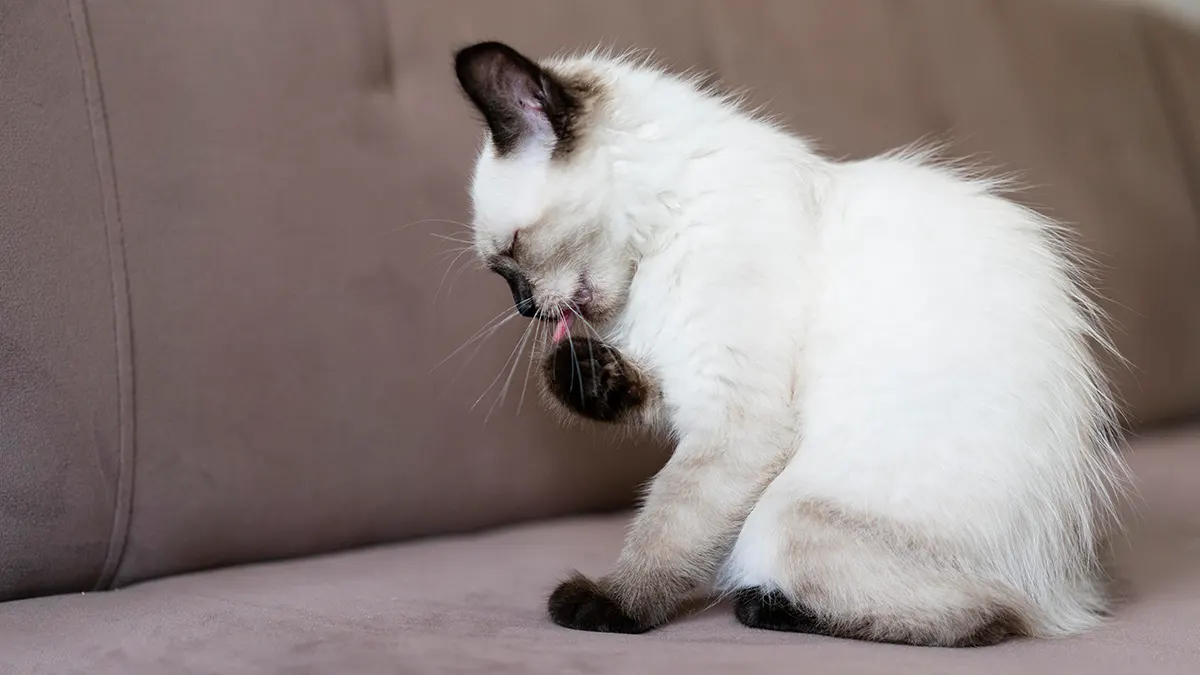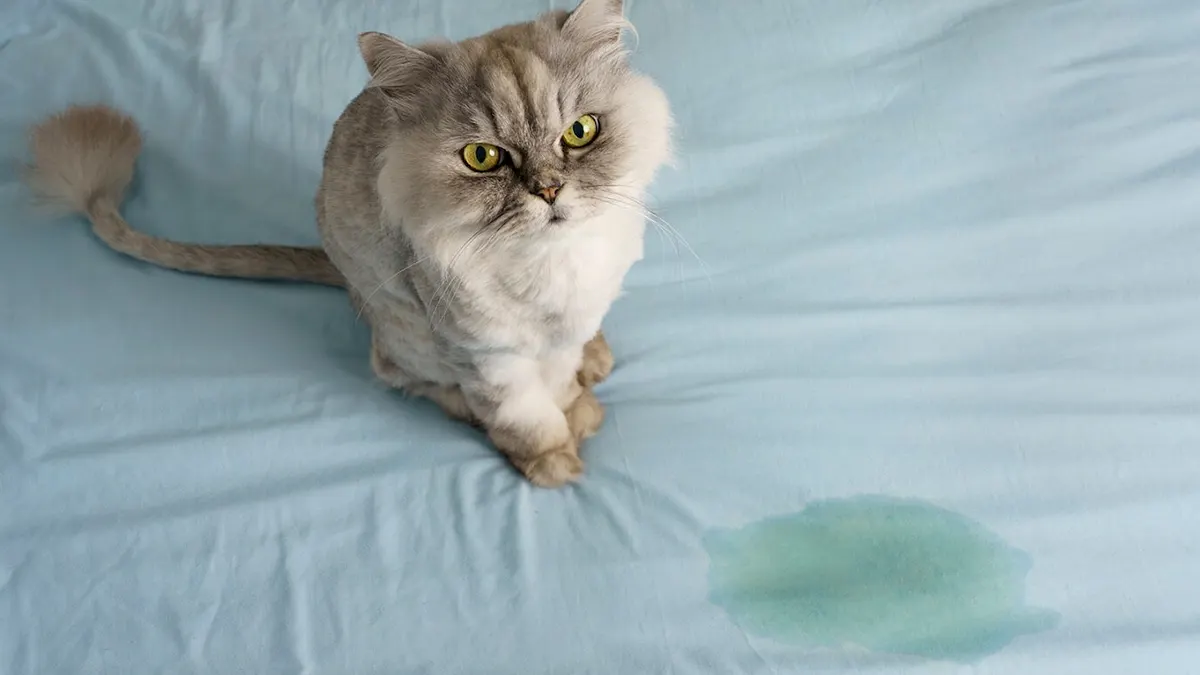Finding that your cat has peed on your bed can be both frustrating and confusing. You may wonder, “Why do cats pee on the bed?” This behavior, while seemingly random, usually has an underlying reason. In this article, we’ll explore the most common causes of this behavior and offer tips to help prevent future accidents.
Table of Contents
1. Medical Conditions
One of the first things to consider when your cat starts peeing on the bed is whether they might be experiencing a medical issue. Cats often urinate in inappropriate places when they’re in pain or discomfort.
a. Urinary Tract Infections (UTIs)
A urinary tract infection can make urination painful for your cat, leading them to associate the litter box with discomfort. As a result, they may choose to pee in a more comfortable or familiar spot—like your bed.
b. Bladder Stones or Crystals
Bladder stones or crystals can obstruct the flow of urine, causing pain. This can make your cat avoid the litter box, opting for other areas in the house, such as the bed, to relieve themselves.
c. Diabetes or Kidney Disease
Conditions like diabetes or kidney disease can increase a cat’s urination frequency, making accidents more likely. If your cat suddenly starts peeing on the bed and you notice other signs like increased thirst or weight loss, a visit to the vet is essential.
2. Stress and Anxiety
Another common reason cats pee on the bed is due to stress or anxiety. Cats are highly sensitive to changes in their environment, and even minor adjustments can cause them stress.
a. Changes in Routine or Environment
Moving to a new home, introducing a new pet, or even rearranging furniture can make a cat feel insecure. In response, they may pee on your bed, which smells like you, to seek comfort.
b. Separation Anxiety
Some cats develop separation anxiety when their owners are away for extended periods. Peeing on the bed might be a way for them to cope with the anxiety of being alone.
3. Litter Box Issues
Cats are particular about their litter boxes, and any changes to their usual setup can cause them to look for other places to relieve themselves, like your bed.
a. Dirty Litter Box
If the litter box is dirty, your cat may refuse to use it and instead opt for a cleaner, more appealing place—like your bed. Keeping the litter box clean and fresh is crucial to avoid this issue.
b. Litter Type or Location
Sometimes, cats don’t like the type of litter or the location of the box. If you’ve recently changed the type of litter or moved the box, this could be why your cat is avoiding it and peeing on your bed.
4. Territorial Marking
Marking territory is another potential reason why cats pee on beds. This behavior is especially common in multi-cat households or if your cat feels threatened by something or someone.
a. Unneutered Cats
Unneutered male cats, in particular, are prone to marking behaviors. Peeing on your bed may be your cat’s way of marking their territory, especially if they feel threatened by another pet or a new environment.
b. New Pets or People
Introducing a new pet or even a new person into the household can make your cat feel insecure. Peeing on the bed may be their way of asserting dominance or marking their space.
5. Aging and Cognitive Decline
As cats age, they may develop cognitive issues or incontinence that leads to accidents. Older cats can become confused or forgetful, and they might pee in inappropriate places as a result.
a. Cognitive Dysfunction
Similar to dementia in humans, older cats can experience cognitive dysfunction, leading to confusion and forgetfulness. Your cat may forget where the litter box is or have trouble controlling their bladder.
b. Incontinence
Incontinence is another issue that can affect older cats, making it difficult for them to hold their urine until they reach the litter box.
How to Prevent Your Cat from Peeing on the Bed
Once you’ve determined why your cat is peeing on the bed, you can take steps to address the behavior.
a. Visit the Vet
If a medical issue is suspected, schedule a vet visit right away. Treating conditions like UTIs, bladder stones, or diabetes can often resolve the problem.
b. Reduce Stress
Creating a calm, stable environment for your cat can reduce stress-related accidents. Use pheromone diffusers, maintain a consistent routine, and provide plenty of playtime and affection.
c. Improve Litter Box Hygiene
Make sure the litter box is clean and located in a quiet, easily accessible area. If your cat doesn’t like the litter you’re using, try switching to a different brand or type.
d. Address Territorial Marking
Neutering or spaying your cat can often reduce marking behavior. In multi-cat households, make sure each cat has their own space, including enough litter boxes—one per cat plus one extra.
e. Protect Your Bed
In the meantime, you can protect your bed by keeping the door to your bedroom closed when you’re not around or using a waterproof cover.
Conclusion
So, why do cats pee on the bed? The answer can vary from medical issues and stress to litter box problems and territorial behavior. The key to stopping this behavior is to first identify the underlying cause and then take steps to address it. With the right approach, you can help your cat feel more comfortable and confident, reducing the likelihood of future accidents on your bed.








